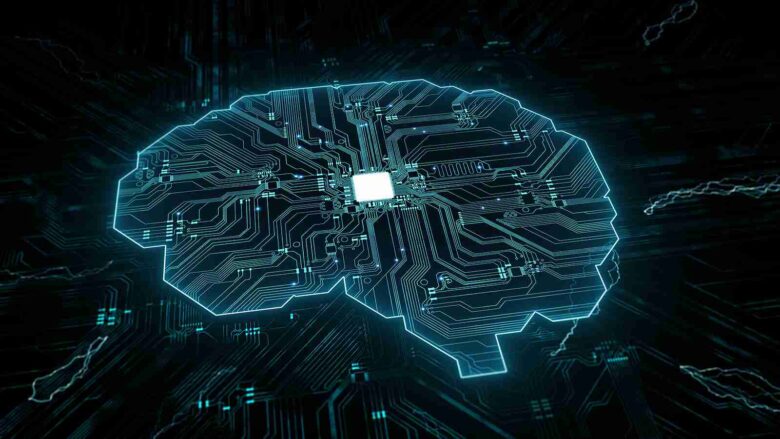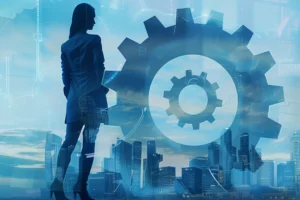Artificial intelligence is at the core of the digital revolution that’s transforming how we work, live, and connect. AI is not just a futuristic concept; it has become a part of our daily lives, driving innovation in all industries. AI influences every aspect of technology, from voice assistants such as Siri and Alexa to the advanced analytics used by businesses around the world. This transformation is about more than just convenience. It’s about redefining productivity, creativity, and efficiency in ways that weren’t even possible a decade before.
AI and Automation: What is it?
AI is a powerful tool for digital technology. Machines are able to perform repetitive and mundane tasks with more accuracy and speed using intelligent algorithms and machine learning. AI-powered robots in manufacturing streamline production lines. AI-powered software in offices automates data input, scheduling, and customer service. Automating routine tasks allows humans to concentrate on creative thinking, problem solving, and strategy. AI’s automation abilities are helping businesses to reduce costs, increase productivity, and create more efficient digital ecologies.
AI in Healthcare Technology
AI is transforming the healthcare industry. AI-powered advanced diagnostic tools can analyze medical images, predict diseases, and help doctors provide accurate treatment plans. AI-driven systems can also monitor patient health remotely by providing real-time information and early warnings of potential complications. AI chatbots, virtual assistants, and other AI-driven systems are now used to guide patients, answer questions, and schedule appointments. AI integration in healthcare not only improves patient outcomes but also makes healthcare more affordable and accessible around the world.
AI in Finance and Banking
The financial sector has adopted AI to improve decisions, detect fraud, and personalize the customer experience. AI algorithms are used by banks to analyze large amounts of data in order to detect suspicious activity and reduce the risk of fraud. AI chatbots provide personalized banking assistance to customers, including helping them manage their accounts, pay their bills, or receive financial advice. AI-powered robo-advisors help individuals invest wisely by analyzing the market and recommending portfolios that are tailored to their goals. Financial services are becoming faster, safer, and more user-friendly thanks to this level of innovation.
AI in Education and Learning
AI is revolutionizing education as well. Intelligent learning platforms personalize education by analyzing student performance and adapting to individual learning styles. AI-powered tools give students real-time feedback to help them identify their weaknesses and improve. Teachers use AI systems to automate administrative and grading work. This gives them more time to concentrate on classroom teaching. AI-driven translation tools eliminate barriers, enabling education to reach students worldwide. AI is democratizing knowledge and creating new opportunities for skill development and lifelong learning.
AI in Transportation and Smart Mobility
AI has had a major impact on the transportation industry. The self-driving car, fueled by AI algorithms and sensors that are powered by advanced AI, is changing the way people view mobility. AI also optimizes traffic management systems, which reduces congestion and improves safety in smart cities. AI is used by ride-sharing platforms to efficiently match drivers and passengers, while logistics companies use AI to optimize routes for deliveries and reduce fuel consumption. AI integration in transportation not only makes travel safer and more efficient but also contributes to environmental sustainability through reducing emissions.
AI in Retail and E-Commerce
AI has transformed the retail and e-commerce industries through its personalized shopping experiences, efficient supply chain management, and improved supply chain management. Online platforms utilize AI to boost customer satisfaction and sales. Chatbots offer 24/7 support by answering questions and helping with orders. AI helps retailers to predict demand, optimize pricing, and manage inventory. It has allowed consumers to have a seamless shopping experience and businesses to be more efficient and agile in the competitive digital marketplace.
AI in Entertainment and Media
The AI-driven digital transformation is a boon for entertainment and media. Netflix and Spotify, for example, use AI algorithms to analyze the user’s preferences and provide personalized content. AI is used to create realistic visual effects, for video editing, and even for generating music and artwork. Video game developers utilize AI to craft immersive experiences, incorporating intelligent non-player characters that react to the player’s actions. AI systems help journalists with content creation and fact-checking. This process process ensures faster and more accurate reporting. The merging of AI and creativity is revolutionizing the creation and consumption of content.
AI in Cybersecurity
AI is an important tool for cybersecurity as digital technology continues to advance. AI systems can analyze vast amounts of data to detect potential threats and unusual patterns. AI is more effective than traditional security systems because it can adapt and learn new attacks. Businesses and governments use AI to protect sensitive data, secure financial transactions, and secure digital infrastructure. AI, by staying one step ahead of hackers, is the backbone for digital safety in an interconnected world.
Conclusion
Artificial Intelligence (AI) is driving the digital revolution. It’s reshaping industries and redefining human potential. AI creates smarter, more efficient, and more personalized systems in healthcare, finance, education, and entertainment. These systems are changing the way we live. The ability of AI to adapt and learn opens up possibilities that were once unthinkable. These advancements are not without challenges, such as data privacy and ethical concerns. As we progress, adopting AI with innovation will ensure this digital revolution is beneficial to everyone.
FAQs
1. What is AI?
AI is a term used to describe the use of artificially intelligent systems and algorithms in digital technology to automate, analyze, and optimize processes across various industries.
2. How can AI affect our daily lives?
AI is a part of our daily lives through voice assistants and personalized shopping, as well as online banking, healthcare monitoring, and entertainment recommendations.
3. What industries are most likely to benefit from AI?
AI has a significant impact on many industries, including healthcare, finance, education, and retail.
4. Will AI replace human jobs?
AI is not just about replacing repetitive tasks. It also creates new jobs in the tech, data, and creative industries.
5. What is the role of AI in digital technologies?
The challenges include ethical concerns, the displacement of jobs, privacy risks, and the need to regulate AI technology.



